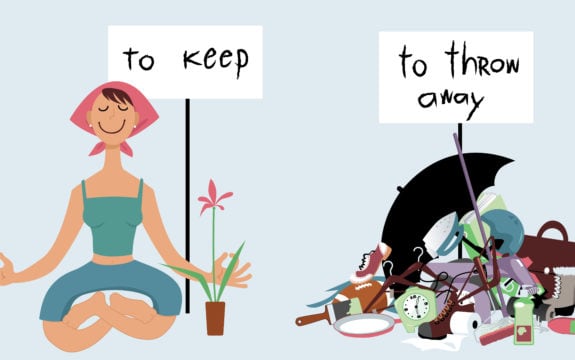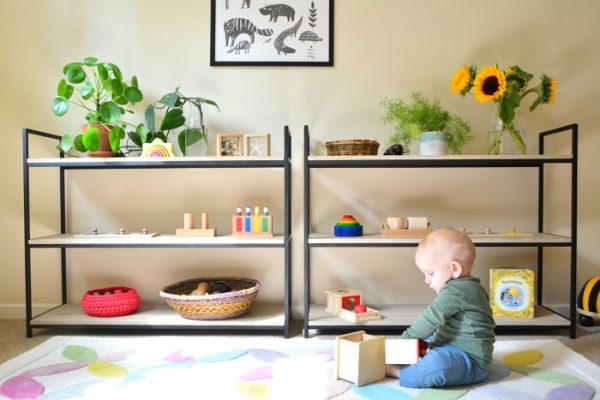From Chaos to Control: Empowering Individuals with ADHD to Conquer Organization
There is a common belief that some people are naturally organized, others are born without the ability to manage their space and stuff, and they will never change. There are some reasons for people’s disorganization, such as lifestyle, challenging situations, depression, or ADHD (Attention Deficit Hyperactivity Disorder).
However, depending on their cognitive abilities, skills, and lifestyle, individuals can obtain a certain level of organization that reflects their needs. Everyone has a different view of space and a way of controlling it. For some people, keeping up with daily routing, managing the household, and staying organized is challenging. The reason might be how their brain works differently than a neurotypical brain. This condition is called ADHD (Attention Deficit and Hyperactivity Disorder), and in some information sources, such as the New York Times or South China Morning Post, it is called even an EPIDEMIC.
ADHD Symptoms
Let’s look at what people precisely what kinds of symptoms people with ADHD have and how they impact their everyday lives.
For individuals with ADHD, it is so familiar to experience these symptoms:
- The feeling of “underachievement” of goals, regardless of objective measures.
- Difficulty with self-organization and chronic procrastination.
- Multitasking/project-taking, difficulty finishing tasks.
- Tendency to say whatever comes to mind immediately, without regard for the timing of the comment or its appropriateness.
- Frequent thrill-seeking, high stimulation, intolerance of boredom.
- Easily distracted, trouble focusing, and prone to wandering off in the middle of a page or conversation, this condition may be combined with hyperfocus in other situations.
- Trouble following a pattern and adhering to a procedure. Impatience, inability to tolerate frustration.
- Impulsiveness, verbal or actional, such as impulsive spending, changing plans, and new career plans.
- Tendency to worry endlessly while ignoring real problems.
- Feelings of insecurity and lack of confidence.
- Mood swings, especially if there is a lack of internal involvement in a project or communication with another person.
- Incorrect perception of yourself and how other people see you.
These symptoms significantly affect all areas of an individual’s life, such as Emotional State, Relationships, Work and Education, and Everyday Life.
Let’s explore everyday routines and general life management strategies that can help people with ADHD overcome task overload, procrastination, and lack of control and stay organized.
Here are some common problems:
- Problems with household planning: difficulties with making a schedule, running a household, preparing food, keeping things in order;
- Financial difficulties: inability to plan a budget, control expenses, save money;
- Health problems: frequent failure to follow doctor’s recommendations, daily routine, irregular medication intake;
- Low independence: Dependence on other people to solve simple everyday tasks.
Practical Solutions for Everyday Challenges for ADHD’s people
Living with ADHD can make everyday tasks feel overwhelming, but every challenge has a solution. You can apply simple, ADHD-friendly strategies to create order in your space and daily routine by understanding your specific difficulties. Below, we’ve outlined some common problems and practical ways to tackle them — helping you move from frustration to control, one step at a time.
Clutter
Individuals with ADHD may struggle to keep their spaces organized due to difficulty focusing and focusing on decluttering tasks.
Solution:
Professional Organizers recommend regular decluttering sessions for clients with ADHD. Usually, it is difficult for them to do it themselves, so professional support and guidance are needed. Clutter can also indicate other issues, so professionals should be trained in this area.
Forgetfulness
Forgetfulness can lead to misplaced or lost items, making it harder to keep track of belongings and maintain an organized space. People with ADHD can buy duplicates and keep losing things.
Solution:
That is why we recommend having a categorization and straightforward system for them. A complicated organizational process easily overwhelms them.
Time management
People with ADHD may find it challenging to organize tasks or underestimate the time needed to complete them.
Solution:
In this case, it is very helpful to divide the work into small chunks and do it step by step so you will see the result quickly and can reward yourself. It is very motivating.
Prioritization
Difficulty prioritizing tasks can lead to procrastination in organizing spaces, resulting in clutter and disorganization.
Solution:
So, if they think it is less critical to toss expired food, throw away rubbish, or keep their shoes well organized, they can end up with food poisoning, infection, or destroyed clothes due to mold, sun, or temperature. We suggest following the custom plan for organizing and decluttering routing to make the process a habit.
Decision-making
Difficulty making decisions can hinder the sorting and categorizing process, making it harder to organize belongings effectively.
Solution:
The decluttering process can be delayed due to lack of this skill and even finished with the decision to keep everything. Inviting someone who can support you and ask the right questions can improve the situation.
Maintaining systems
People with ADHD may struggle to maintain organizational systems over time, leading to a cycle of disorganization and reorganization.
Solution:
Even if a professional organizer creates this system, you must learn to keep order and make it a habit. We suggest creating the most straightforward system, which reflects the individual’s lifestyle and is understandable to them.
Distractibility
Distractions can disrupt organizing efforts, making staying focused on the task challenging.
Solution:
In that case, visual control tools might be helpful (e.g., an organizing plan with clear steps, reminders, timers, and labels).
You will handle it!
If you follow these strategies, you can stay organized and manage your space effectively, even if it seems impossible for an ADHDer.
“Organized space—organized mind.”
This famous expression perfectly explains the impact of organization on individuals with ADHD. It helps them focus and reduces their stress and anxiety.
The reason is these unique methods of organizing, explicitly designed for people with ADHD, stand apart from traditional approaches. Remember, organization for people with ADHD is NOT about achieving perfect order — it’s about creating a space that works for you. Small steps, simple solutions, visual reminders, and support from others can help you regain control over the chaos. Find an approach that feels manageable for you every day, and over time, organizing will stop being an exhausting struggle and become a natural part of your life. That’s when an organized space will be easy to maintain, implement ADHD-friendly techniques, and get your life back from chaos to order.
About the author
Natalia Privalova is a professional home organizer and productivity consultant based in Hong Kong. As the founder of Simply Sorted, she specializes in helping individuals, including those with ADHD, create functional and organized spaces. Natalia is a member of the Institute for Challenging Disorganization (ICD) and offers personalized strategies for decluttering, time management, and productivity.
Contacts: https://www.simplysorted.hk/









